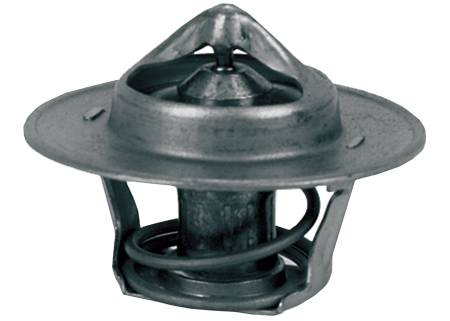Q: Could a damaged thermostat affect engine performance?
A: Yes, a broken thermostat could cause the engine to overheat and lead to engine damage.
Q: Could a damaged or missing thermostat affect fuel economy?
A: Yes, every engine is designed to run at a specified temperature. An engine that runs cold (without a thermostat) may use 10-20 percent more fuel and will not run properly.
Q: Is there a way to verify that my vehicle's thermostat is functioning properly?
A: Yes, the thermostat can be tested by boiling it in plain water for approximately 3-5 minutes. If the thermostat does not open, it should be replaced.
Q: Could a damaged thermostat affect interior heat?
A: Yes, the thermostat can become stuck in the open position. This will prevent the engine from reaching operating temperature in cold weather, resulting in poor interior heater performance.

 WARNING: Cancer & Reproductive Harm -
WARNING: Cancer & Reproductive Harm -
Write the First Review!